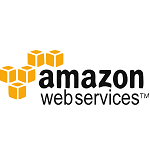According to Analytics Monk the terms “oracle aws” and “amazon rds” have been trending amongst developers over the past few days. So Amazon.com’s announcement that Oracle Database 11g will be available as a part of Amazon RDS is either great timing or was already expected. Amazon Web Services users will be able to transfer existing Oracle licenses, buy new licenses or, interestingly, pay an hourly licensing fee instead of buying a license.

Here’s how the licensing fees break down:
- “Bring Your Own License” – (BYOL) – Customers with existing Oracle Database licenses can apply them to run Oracle Databases on Amazon RDS with no additional software licensing or support charges.
- On-Demand Database Instances (DB Instances) – This pay-by-the-hour licensing option requires no pre-existing licenses, up-front fees, or long-term commitments to run Oracle Databases on Amazon RDS. Customers pay a simple, hourly rate per RDS Database Instance running Oracle Database 11g. The hourly rate depends upon the Oracle Database edition and DB Instance size option selected.
- Reserved DB Instances – Reserved DB Instances allow customers to make a low, one-time payment for each DB Instance and in turn receive the option to run that DB Instance at a significant discount on the ongoing hourly usage charge. Both one-year and three-year reservation terms will be available.
Oracle already offers its own hosted solution called Oracle On Demand, and support for Amazon RDS using Oracle will actually come from the On Demand team.
The metered software angle is interesting. MorphLabs has been doing this with Zend Server for a couple of months now. However, the metered use, “pay as you go” model has been mostly applied to server resources until now. It will be interesting to see if this catches on for platform-as-a-service and software-as-a-service providers.
Amazon RDS already offers MySQL, so Oracle is a logical extension. But it’s impossible not to see this move as a response to Salesforce.com’s Database.com service. According to Amazon.com’s announcement: “With support for the Oracle Database engine, Amazon RDS will streamline database administration for multiple editions of Oracle Database 11g Release 2, freeing up developers to spend more time on the differentiating parts of their applications rather than the muck of maintaining and scaling their database infrastructure.”
That sounds an awful lot like Database.com’s value proposition.
In addition to Database.com, AWS RDS competes with several other cloud database providers.










